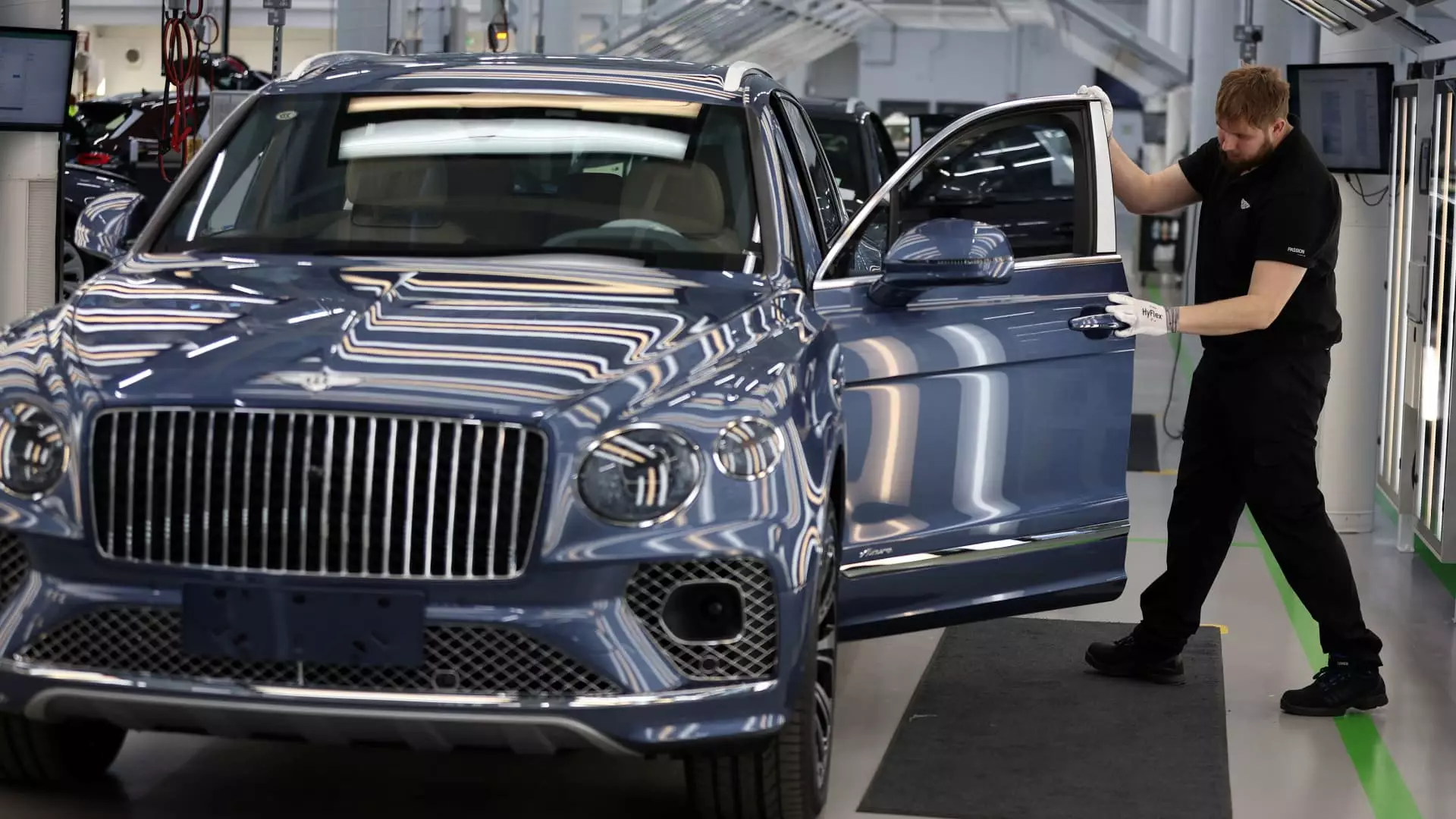Bentley Motors, a name synonymous with ultra-luxury and performance, is making notable adjustments to its electrification roadmap. Originally targeting an all-electric vehicle lineup by the end of the decade, the company has pushed this goal to 2035, indicating a continued reliance on plug-in hybrid electric vehicles (PHEVs) for the foreseeable future. This strategic pivot underscores not only the challenges of evolving consumer demand but also the legislative pressures that are reshaping the automotive landscape.
Frank-Steffen Walliser, the CEO of Bentley Motors, acknowledged during a recent media event that current demand for electric vehicles among its clientele is some what lackluster. The traditional Bentley customer base has historically favored combustion engines for their performance and luxury experience. With this reality, Bentley’s strategy reflects a cautious yet adaptive approach to a market that is in flux. Walliser emphasized the dual pressures of market conditions and the necessity for compliance with evolving emissions legislation as driving forces behind this adjustment.
The recognition that “there’s not a lot of demand” for electric vehicles within Bentley’s existing customer demographic suggests an opportunity for the brand to not only retain its heritage but also to prepare for a future demographic that ultimately may prefer electric models. This move transitions Bentley’s focus from merely meeting current expectations to anticipating the needs of a potentially new clientele that prioritizes sustainability and innovative technology.
Initially set to launch its first all-electric vehicle (an SUV positioned as a “Luxury Urban SUV”) in 2026, Bentley’s timeline reflects an understanding that solid execution requires thorough preparation rather than expedient rollout. The delayed production timeline can be attributed not merely to external demand but also internal challenges regarding software and vehicle architecture. These technical obstacles prompted former CEO Adrian Hallmark to reflect on the complexities of creating a vehicle that remains true to Bentley’s luxurious standards while integrating groundbreaking electric technologies.
Under Walliser’s leadership, Bentley aims to release new electric or PHEV models annually, showcasing a commitment to gradual integration. This measured strategy, pivoting from its previous “Beyond100” vision to the rebranded “Beyond100+,” indicates an ongoing transformation that acknowledges both past ambitions and present realities.
Despite the shift toward electrification, Bentley intends to retain certain traditional internal combustion engines in its lineup for the time being. Earlier this year, the company concluded production of its renowned W12 engine, marking a significant departure from a hallmark of Bentley’s performance legacy. This decision signals an important transition phase, as Bentley grapples with balancing its storied reputation for high-performance luxury vehicles with the inevitable shift towards hybrids and electric propulsion systems.
PHEVs, which blend conventional engines with electric battery technology, are positioned as a bridge between the past and the future for Bentley. By offering models equipped with 8- and 6-cylinder engines alongside hybrid systems, Bentley attempts to cater to a shifting consumer preference while not completely abandoning the hallmark power that characterizes its heritage.
As Bentley prepares for a transformative phase of operation, it does so with a strong commitment to adapt and align its product offerings with market realities. The evolution of the automotive industry is undeniable; electric vehicles are no longer a distant vision but an urgent necessity driven by regulatory mandates and a younger marketplace’s preferences.
With plans to unveil a series of PHEVs and electric vehicles over the next decade, Bentley is not losing sight of its luxury ethos. By merging tradition with innovation, Bentley seeks to emerge as a leader in the luxury electric segment while preserving the essence of its brand. The challenge lies in executing this strategy effectively, satisfying both loyal customers and attracting new generations of eco-conscious luxury car buyers.
Ultimately, Bentley Motors stands at a critical juncture, poised to redefine what luxury means in an age of electrification while staying true to its legacy of performance and opulence.

Leave a Reply